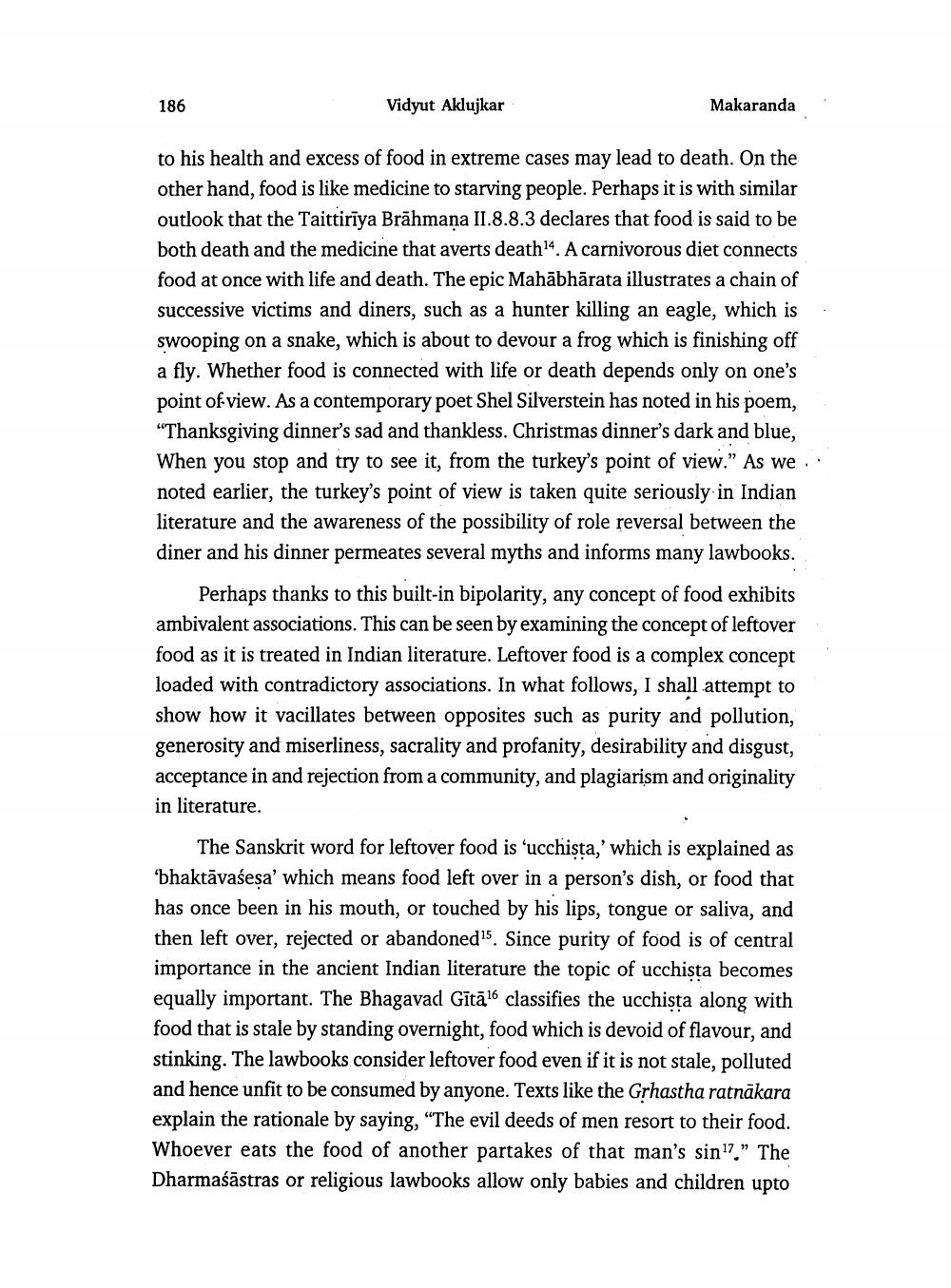________________
186
Vidyut Aklujkar
Makaranda
to his health and excess of food in extreme cases may lead to death. On the other hand, food is like medicine to starving people. Perhaps it is with similar outlook that the Taittiriya Brāhmana II.8.8.3 declares that food is said to be both death and the medicine that averts death14. A carnivorous diet connects food at once with life and death. The epic Mahābhārata illustrates a chain of successive victims and diners, such as a hunter killing an eagle, which is swooping on a snake, which is about to devour a frog which is finishing off a fly. Whether food is connected with life or death depends only on one's point of view. As a contemporary poet Shel Silverstein has noted in his poem, "Thanksgiving dinner's sad and thankless. Christmas dinner's dark and blue, When you stop and try to see it, from the turkey's point of view.” As we noted earlier, the turkey's point of view is taken quite seriously in Indian literature and the awareness of the possibility of role reversal between the diner and his dinner permeates several myths and informs many lawbooks.
Perhaps thanks to this built-in bipolarity, any concept of food exhibits ambivalent associations. This can be seen by examining the concept of leftover food as it is treated in Indian literature. Leftover food is a complex concept loaded with contradictory associations. In what follows, I shall attempt to show how it vacillates between opposites such as purity and pollution, generosity and miserliness, sacrality and profanity, desirability and disgust, acceptance in and rejection from a community, and plagiarism and originality in literature.
The Sanskrit word for leftover food is ‘ucchista,' which is explained as 'bhaktāvašeşa' which means food left over in a person's dish, or food that has once been in his mouth, or touched by his lips, tongue or saliva, and then left over, rejected or abandoned". Since purity of food is of central importance in the ancient Indian literature the topic of ucchista becomes equally important. The Bhagavad Gītā16 classifies the ucchista along with food that is stale by standing overnight, food which is devoid of flavour, and stinking. The lawbooks consider leftover food even if it is not stale, polluted and hence unfit to be consumed by anyone. Texts like the Grhastha ratnākara explain the rationale by saying, “The evil deeds of men resort to their food. Whoever eats the food of another partakes of that man's sino7." The Dharmaśāstras or religious lawbooks allow only babies and children upto




